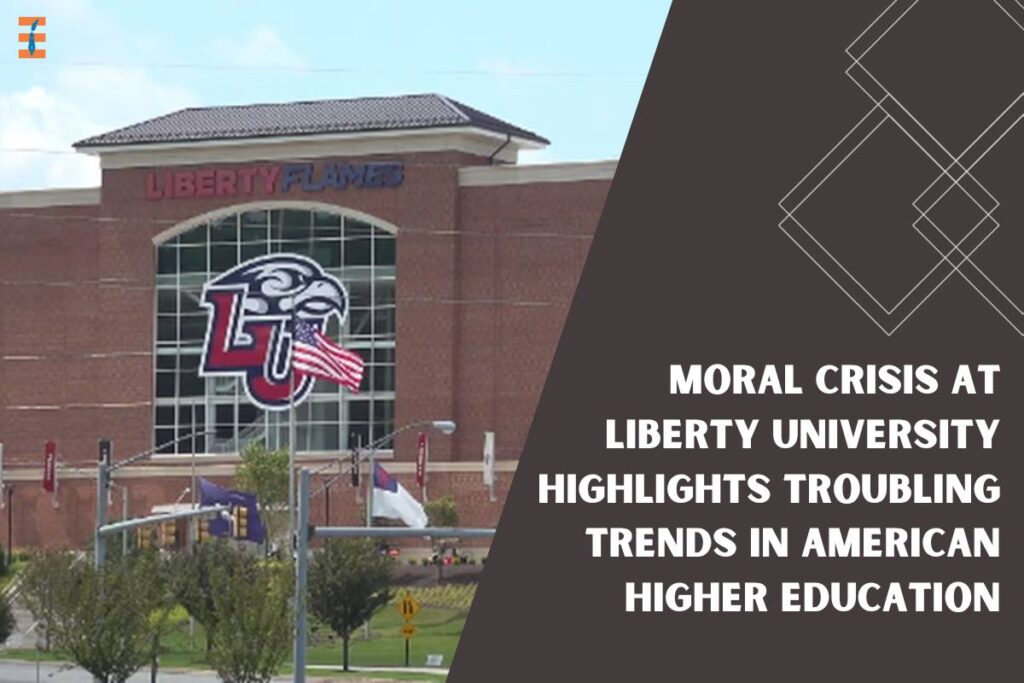The moral collapse at Liberty University in Virginia is emerging as one of the most significant education scandals in the United States, drawing attention not only for its shocking details but also for the crisis it reflects within Christian America. The unfolding scandal symbolizes a cultural and political approach that distorts Christian theology and threatens the reputation of American higher education.
Unprecedented fine
Recent reports from Fox News reveal that Liberty University faces a potential “unprecedented” fine of $37.5 million from the U.S. Department of Education due to investigations into Clery Act violations. This federal statute mandates that federally funded colleges and universities publicly report data on on-campus crimes. To put this fine into perspective, consider that Michigan State University paid $4.5 million for its “systemic failure” in responding to the Larry Nassar sexual abuse scandal, in which Nassar was convicted of abusing numerous women under his care. The leaked Education Department report leaves little doubt about the severity of Liberty’s potential penalty.
The report paints a grim picture of Liberty University, suggesting that the institution discouraged reporting crimes, underreported received claims, and marketed its Virginia campus as one of the safest in the country while significant safety concerns persisted. This includes the failure to alert the campus community about gas leaks, bomb threats, and individuals credibly accused of repeated acts of sexual violence, including a senior administrator and an athlete. The allegations are so damning that a campus safety consultant described the report as “the single most blistering Clery report I have ever read.”
The case of Jerry Falwell Jr
The scandal involving Liberty University is not an isolated incident but part of a broader pattern of misconduct. The most well-known is the case of Jerry Falwell Jr., a former university president and the son of its founder, who resigned amid allegations of sexual misconduct involving himself, his wife, and a business associate named Giancarlo Granda. Liberty University has also faced lawsuits related to mishandling claims of sex abuse and harassment, where the university’s strict code of conduct, known as the Liberty Way, was used against victims in disciplinary proceedings.
In response to these controversies, Liberty University has denied many allegations against it, pointing out errors in the Education Department’s preliminary report. The university has acknowledged compliance gaps with the Clery Act and is investing in enhancing campus security and reviewing Title IX procedures.
Questions raised on the moral fabric of American Christian institutions
However, these troubling incidents extend beyond mere scandal. They raise questions about the moral fabric of American Christian institutions, demanding accountability and introspection from within. They challenge the very essence of Christian values and principles. This situation mirrors a broader issue within American Christianity. Many Christians, while quick to criticize external institutions, appear remarkably tolerant of internal misconduct within the church. In doing so, they undermine the church’s moral authority and witness to the world. In the first letter to the Corinthian church, the Apostle Paul fiercely denounced sexual immorality within the church. He emphasized that the church should hold its members accountable for their actions, leaving judgment of those outside the church to God.
The health of the church is not determined by external forces but by its internal integrity. Liberty University’s crisis exposes a reality of evangelical life—the enemy of American Christianity is often itself. The church must prioritize addressing internal moral crises to maintain its moral authority and continue to be a positive force in American society.










